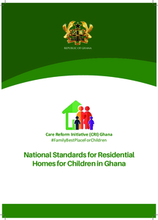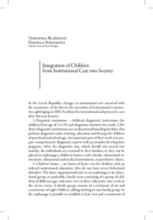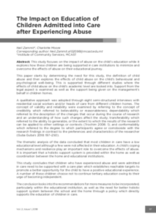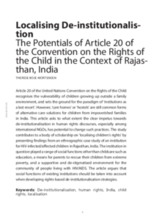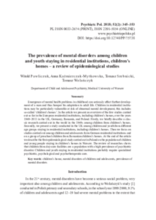Displaying 721 - 730 of 1482
The revised Standards outlined in this document are aimed at strengthening the first National Standards for Residential Homes for Children (RHC) in Ghana, developed in 2010.
This article describes the changes in institutional care in the Czech Republic that were ushered in with the acceptance of the law on the execution of institutional or protective upbringing in 2002.
This report presents a needs assessment which provides a summary of the situation of children with disabilities who are living in residential care institutions and in communities in Cambodia and proposes seven key recommendations and relevant concrete actions for the short, medium and long term to improve the quality of care of children with disabilities living in institutions and to ensure that they have better access to basic services and are living in a protective environment.
This paper reports on findings from an evaluation study of two institutions providing transition programmes to adolescent girls transitioning from institutional care in Zimbabwe.
This research provides insight into the current intervention strategies used by social workers in emergency child protection, whereby children are removed from their caregivers as a result of abuse and are placed at child and youth care centres.
This study focuses on the impact of abuse on the child’s education while it explores how these children are being supported in care institutions to minimize and overcome the effects of abuse on their educational journey.
This study contributes to a body of scholarship on ‘localising children’s rights’ by presenting findings from an ethnographic case study of an institution for HIV-infected/affected children in Rajasthan, India.
This article presents an overview of the few studies carried out so far in the European residential institutions, including children’s homes, over the years 1940–2011 in the UK, Germany, Romania, and Poland.
This small pilot study to explores what is currently taught to future doctors about children in out-of-home care (OOHC) and found that there is no formal teaching about these children in the University of Melbourne Doctor of Medicine course.
In order to define what support is necessary for the successful emancipation of young people leaving alternative care in Serbia, this study of 150 young people in care aims to analyse both their preparedness for leaving alternative care, and whether the type of placement (kinship, foster, or residential) makes a difference to the level of preparedness.

